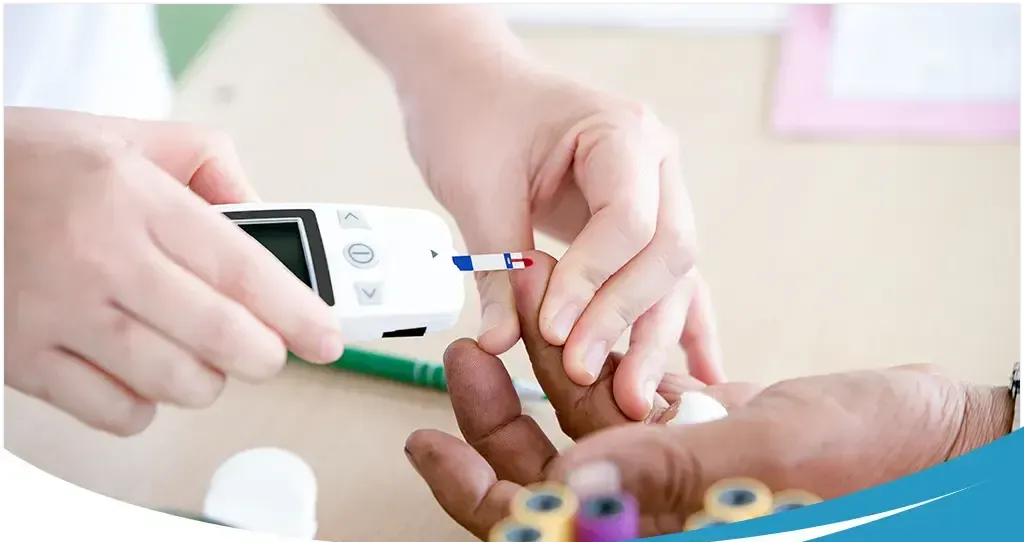
Long-term care (LTC) pharmacies are very important for making sure that diabetics in LTC homes get all the care they need from trained professionals. Together with medical staff, they make sure that people with diabetes get care that is specific to their needs and meets all of those needs. As more people, especially older people, get diabetes, it’s more important than ever to make sure that each person gets the right care in long-term care settings. This article talks about how long-term care shops help people with diabetes and stresses how important they are to improving the health of the people who live there.
Table of Contents
Getting medications to people
One of the most important jobs of LTC pharmacists is to make sure that diabetes medicines are handled properly. LTC pharmacists make sure that insulin, oral anti-diabetic drugs, and other related drugs are given correctly, on time, and in the right amount by working closely with healthcare workers. Medication management stops mistakes and helps residents stick to their treatment plans better.
Customized programs for treatment
LTC pharmacists know that managing diabetes is different for each person and work with healthcare teams to come up with personalized solutions. These treatments take many things into account, like the residents’ blood sugar levels, any other health problems they may have, their food habits, and any possible drug combinations. Long-term care pharmacists make sure that each resident’s diabetes care is tailored to their specific needs by creating treatment plans.
Medication Review and Supervision
In long-term care pharmacies, expert diabetes care is based on regular reviews of medications. Pharmacists look at the list of medications that people are taking to find any possible drug combinations or side effects that could make managing diabetes harder. This strategic method lets treatment plans be changed at the right time, which makes diabetes control more effective. Long-term care facilities also have shops where residents can check their own blood sugar levels. This gives them a say in how they are cared for.
Health and Wellness
Diabetes can be better managed with education, and LTC pharmacists help by giving patients and workers useful information about the disease. Residents learn self-management skills like how to take their medications correctly, eat well, and exercise regularly through educational materials, workshops, and training events. Residents get a lot of information and training from this, which helps them control their diabetes well.
Working Together as a Healthcare Team
To effectively control diabetes in long-term care homes, healthcare teams must be able to communicate and work together. LTC pharmacies work closely with doctors, nurses, chefs, and other health care workers to make sure that care is organized and streamlined. At joint meetings, the success of residents is talked about. This lets care plans be changed quickly when needs change.
Help with Adherence
Taking medications as recommended is an important part of managing diabetes. LTC pharmacies offer a variety of services to help people stick to their drug plans, such as tablet packing, medicine syncing, and prompts. These helpers help people take their drugs as recommended, which lowers the risk of problems and improves health results.
Prepare for an emergency
Long-term care pharmacies help facilities make emergency plans for diabetes-related situations, which makes patients safer. In long-term care centers, pharmacies make sure that residents get the right care at the right time during emergencies by teaching staff how to spot and deal with emergencies like hypoglycemia and diabetes.
Care that doesn’t stop
When a person goes from one healthcare place to another or is treated, they must be able to easily switch between them. LTC pharmacies work to keep care going by talking to hospital pharmacists and other healthcare workers. This makes sure that drug schedules are changed as needed, which keeps diabetes control from getting too complicated.
Checking for Quality
LTC pharmacies follow strict quality and legal standards to make sure that the specialized diabetes care they provide is safe and effective. Reviewing and auditing drug regimens helps find places to make things better, which means that LTC pharmacists can always improve the care they give to diabetic patients.
Conclusion
Long-term care pharmacists are very important for providing expert diabetes care in these types of settings. Residents with diabetes get complete, individualized care because they are good at managing medications, planning personalized treatments, teaching, and working with other healthcare teams. LTC pharmacies make a big difference in the health and quality of life of residents by helping them stick to their medications, being ready for emergencies, and making sure they get the same care over time. As the need for diabetes treatment in long-term care facilities grows, LTC pharmacists will continue to play a key part in improving the health of this fragile group.
There’s no doubt that taking care of diabetes can be hard. The people who work in our drugstore have had a lot of training and are qualified to help people with Type 1, Type 2, and Gestational diabetes.
We can help you understand and take care of your diabetes by giving you expert tracking, medicines, and advice that will help you live a healthy life on your own while you have diabetes.
To find out more about how to live well with diabetes, call the Tramadol (Ultram) Store at (304) 202-5240.
